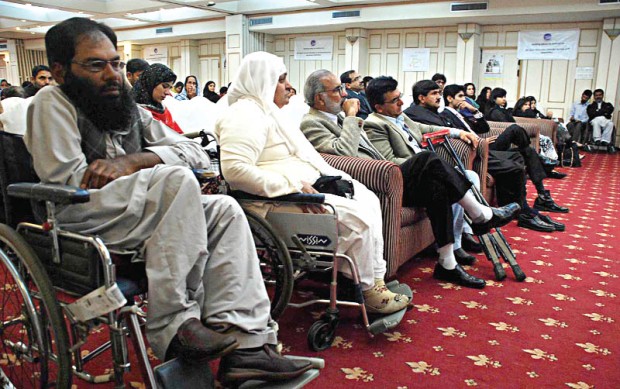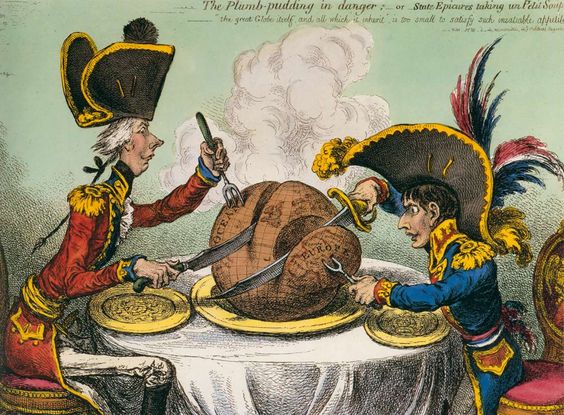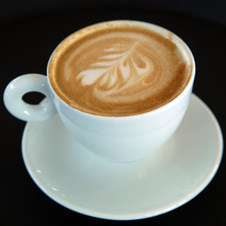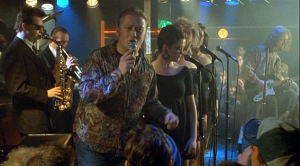It’s Eid ul Azha, a major Muslim festival that marks the end of the Hajj pilgrimage in Mecca
As always, the headlines contain the latest ‘news’ about the deadlock in the Israeli / Palestinian mess, speculation on terrorism and the latest Western plans to bomb Iraq.
This year the terrorism and bombing plans have taken on a newly apocalyptic turn with the rise of the so-called Islamic State, controlling territory in eastern Syria and Iraq.
They’re terrifying, deliberately so; with their snuff videos, genocidal clearings of non-Sunni Muslims and enslavement of non-Sunni Muslim women and girls.
It’s easy to see Islamic State as both a continuation of some assumed barbarity within the Islamic world & mindset and an aberration divorced from any human origin. This contradiction in the popular and political mind says more about the opponents of Islamic State than it says about Islamic State.
***
Islamic State, Boko Haram, the Taliban, Al Shabaab, Al Qaida & it’s franchises et al represent the utter failure of the Islamic world in northern Africa, the Middle East and south west Asia.
These organizations wouldn’t have the space to operate without the rotting away of state superstructures; without the failure of politics to deliver anything other than exploitation and oppression; without the failure of education and the wider culture to both challenge fanatic ideologies and deliver a viable alternative.
Failure in the face of what, you might ask?
To understand the plight of the Islamic world, you have to understand something of the success of its past. In terms of the achievements of culture, science, medicine, architecture, town planning and organization; the various components of the early medieval Islamic world were way ahead of the West, rivalling (and even exceeding in some instances) the achievements of China and India.
Muslim scholars and the societies in which they lived were intellectually curious, bold, adventurous and ground breaking. The European Rennaissance wasn’t merely a rediscovery and renewed interest in the learning and culture of the Classical past, it was the investigation and repurposing of Islamic achievements.
In more recent centuries the Islamic world has found itself overtaken in absolute terms, subject to the imperial ambitions of European powers, severe economic competition from Europe and the US, often being late adopters of modern advances in medicine, science, education, manufacturing, digital technology.
From what I’ve read, failing societies seem to turn to extremes to explain and survive their failure. Old Kingdom ancient Egypt collapsed under the weight of environmental change to which hunger and extreme violence became the norm. Another instance might be the rise of far right ideologies in Europe and Asia after the calamity of the First World War and the current ongoing financial crises around the world.
Similarly, the profound failures of the Islamic world, the very rotting away of states, has given us fundamentalist political Islam. Earlier responses to the depredations of Western colonialism such as Arab nationalism have utterly failed; contained or crushed, by Anglo – US actions (similarly, the US / UK backed 1953 coup d’état in Iran) and finally undermined by the collapse of Soviet power at the end of the Cold War.
Mirroring the political failure is the wider societal failure (economic, educational, developmental) which prompted the Arab Spring. At the same time, deep seated corruption and exploitation have seen states such as Pakistan, Nigeria, Sudan, Libya, Somalia, Iraq and Syria partially or totally vanish as a result of industrial scale corruption, mismanagement and blind intransigence.
All that’s left to fill the void are organizations made up of thugs, criminals, political and intellectual fantasists and failures who are left to rampage across a territory.
The kinds of organizations exemplified by Islamic State look back to some kind of past golden age when everyone was bound by Islam and there was justice, peace and prosperity. This fictional past bares resemblance to the fantasies of European fascists of the 1920s and 30s; Hitler’s bold Teutonic culture represented by Wagner and Nordic myths of Aryan warriors; Mussolini’s dreams of reviving a golden Roman past or the political Catholicism of Franco.
Each driven by a profound failure of economics, education, politics, culture and above all of imagination.
Abu-Bakr al-Baghdadi, the so called Caliph of the Islamic State is a failed cleric. Most of his followers have a very selective knowledge of Islam. Indeed, Muslims themselves would say these people only do what they do because of their profound ignorance of Islam as a set of ideas to live life by, as a spiritual philosophy and as a means of organizing society. It seems the only people who agree with supporters of fundamentalist terrorists in the extremist interpretation of Islam are the Saudi state and Western ‘Islamophobes’. That is, the progeny of a profound failure of imagination and people whose main motivation is xenophobia at best and racism at worst.
***
Baghdadi is not the first warlord to set himself up as a king in the Middle East and probably won’t be the last. Inspite of appearances, I think he and his ilk represent a profoundly twentieth century and Western vision of the nature of humanity and power.
The situation is complicated by what look like successful alternatives in the Persian Gulf, the monarchies of the Arabian Peninsula. Saudi Arabia, Qatar and the United Arab Emirates. Each of these has based its wealth on petrodollars (or in the case of Dubai, gold smuggling from India in the 70s and 80s), the media and sporting industries or on speculative, spectacular property deals.
At their core, they remain unreformed, exploitative, absolutist monarchies whose position is only guaranteed by the flow of money from the wider global economy. Underlying it all is the potential for deep instability. Witness Saudi Arabia’s battles with Al-Qaida in the Arabian Peninsula and its recent de facto acknowledgement of supporting Islamic State as a huge regional policy mistake.
***
It was possible to support the US intervention in Afghanistan, because the Al-Qaida presence had to be rooted out; especially after 11th September 2001. The later invasion of Iraq in 2003 was a disaster waiting to happen. It was so clearly misguided, such an obvious mistake that it’s hard to see how people with the most expensive education money can buy could have thought it was sensible from any angle.
This situation is itself a consequence of the destruction of Iraq and the botched political legacy the US and Iran both agreed upon in 2011.
To add complexity to complexity, it’s also a product of the mishandling of the Syrian civil war, not only by the US and Europe, but also by Russia, Turkey, Qatar, Saudi Arabia and the UAE. This is a mess with many fathers.
The new situation in Iraq and Syria isn’t going to be solved by US and allied bombing raids alone. Someone’s boots need to be on the ground, but whose? The only power with the ability to decisively defeat Islamic State on the battle field is the US.
Meanwhile, the zenith of US power and its ability to act unchecked has passed and the American people remain suspicious of open ended military commitments in the Middle East. Besides, the US no longer has the money and is more concerned about China.
Nor is it obvious that regional powers such as Iran and Saudi Arabia want the return of US troops to their backyard. For Iran, however much they hate and fear IS, they probably hate and fear the US more. For Saudi Arabia, they probably wouldn’t be able to stop their population uprooting and going to fight for IS en masse.
For a good 40 years, Western news headlines and political debate has been punctuated by ever more massive arms sales to Saudi Arabia and other Gulf monarchies. Billions of dollars sent from the world’s consumers of oil products to (among other destinations) Western arms companies via Gulf Arab bank accounts.
And they still want the West to fight their battles for them, from containing and crushing Iran to defeating Bashar al Assad in Syria to eradicating IS.
The ‘dog that hasn’t barked’ so far, is Turkey. It was doing so well. Growing links with regional powers fuelling and driving increased ambition on the international stage; enabled by a thriving economy, vibrant democracy and a groundbreaking ‘no problems with neighbours’ foreign policy. Now, all that is a distant memory. The democracy is returning to authoritarianism, the economy was buffeted by the 2008 crash and worst of all, the foreign policy has been exchanged for serious misjudgements in Syria and now Iraq.
Turkey has yet to fully declare its hand in the face of Islamic State.
The stuff I’ve read about the crimes of IS make me think of death cults such as the Nazis (and I don’t say that without reason) and the Khmer Rouge – the very reason for their existence is the exercise of murderous power over entire peoples, with limitless ambitions for destruction and death.
That they must be stopped is common sense. But how?
The only way this can be ended and that ending be politically acceptable is for the regional powers to end it themselves independent of the old imperial and Cold War powers.
It also means more distant international powers not interfering in the region and allowing their own interests and prejudices to come before local interests; preventing any kind of equitable settlement to local problems.
This has the disadvantage that they can’t throw their populations the bone of quietly blaming the Americans for their discomfort, but it has the advantage that the solution will be more agreeable to the people that matter, the people that live there.
Other changes that are necessary would have to be more far reaching. An education system that doesn’t teach hate, war and murder as justified domestic and foreign policy goals. An economic system that creates space for ordinary people to take make a living for themselves outside of foreign multi nationals and domestic slavery. A political system that allows everyone a chance to control their own destiny and (more importantly) to let off steam by making the changes that respond to their needs. An attempt to change the culture from one of imperial expansion and the caricaturing of non Sunni / Wahhabi / Salafi Muslims as ignorant dogs deserving of conversion at sword point.
Each of these would undercut the position of groups such as Islamic State as the true champions of ‘real Islam’, whatever that means. And everybody might have a chance of getting on with their lives in peace and quiet at last.

 ing the Common Market (as it was called in the early 1970s) has been Britain’s biggest European adventure since England abolished the monasteries and overthrew the Catholic Church in 1535.
ing the Common Market (as it was called in the early 1970s) has been Britain’s biggest European adventure since England abolished the monasteries and overthrew the Catholic Church in 1535.

























